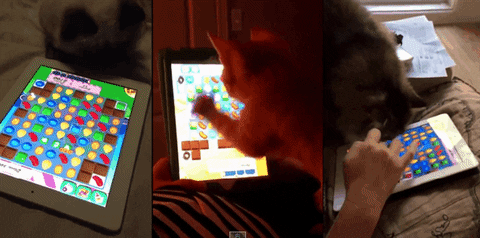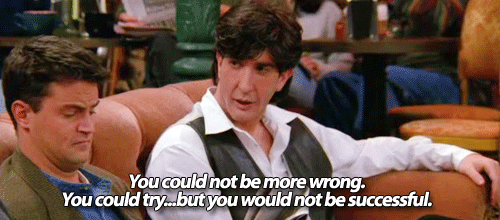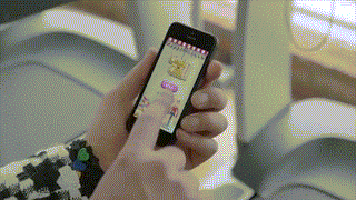I have a confession to make: I'm addicted to playing Candy Crush.

Yes, I'm talking about the addicting 5000-level puzzle game where users match like-colored candies and complete objectives. So easy to get sucked into, yet so difficult to cut out of your life.
I shamelessly play it while I'm eating, on the MTR (the Hong Kong equivalent of the subway) on my way to work, before I go to sleep, and any other time in between.
Now, you might be thinking, isn't Candy Crush so 2012?

You couldn't be more wrong. Candy Crush players spend more than $4.2 million a day on add-ons, and the franchise's revenues for 2018 totaled $1.5 billion. Three sequels of the game have grossed millions upon millions of dollars. (Just to clarify, I haven't spent any money playing Candy Crush, and I'm extremely proud of this fact.) Players have swiped a total of 167 million miles: the distance of traveling from Earth to Mars 5 times. This month, the franchise released its 5,000th level.
Everyone is entitled to his or her own opinion, but I believe Candy Crush is a timeless game. Not many other apps have been able to continue operating for this long with close to 10 million users still playing every day. I'm happy to admit that I am one of those users.
As of right now, I am on level 2,456, but that honestly could change by the time I'm done writing this article. Additionally, the "Screen Time" section of my iPhone settings tells me that I have played Candy Crush for exactly 7 hours and 8 minutes in the past 7 days, with my daily average being around 1 hour. So yeah, I have a slight problem.
It makes me feel better, though, that there are much worse addicts than me. Alex Dale, a senior executive at King (Candy Crush's maker) said that of the 270 million users, 9.2 million play for 3 or more hours a day and 432,000 play for 6 or more. British mom Natasha Woolsley, who played Candy Crush for 18 hours a day, has lost her boyfriend, job, and thousands of pounds (the currency) as a result of her severe addiction. She's even consulted a therapist as well. So in the grand scheme of things, I'm not that bad, right?
What is also amazing is that the mobile game transcends all geographical boundaries—the game continues to be played on all seven continents, including Antarctica. During my time interning in Hong Kong, I've seen people of all ages playing the game (especially on my daily MTR rides to work), and I even noticed some players when I visited Singapore this past weekend.
But what exactly makes Candy Crush so addicting?

People who play Candy Crush can attest to the fact that the game is very easy to get sucked into. The reason for this is because we pass the first few levels with ease, giving us a strong sense of satisfaction and causing our brains to release dopamine, a neurotransmitter than affects pleasure and learning. As the game progresses, the levels become more difficult, and we release more and more dopamine after passing each additional level. If you have connected the game to your Facebook account, you can see how many levels you have passed in the past week compared to your other friends on Candy Crush, motivating players even more to play the game and to get ahead of their friends.
Furthermore, each player receives 5 lives on the app, with each taking 30 minutes to refill. When our 5 lives run out, we are left wanting more, and when we are granted access back into the game, winning levels becomes more rewarding. Players who use real money to buy additional lives contribute even further to their addiction.
Lastly, it is very strategic that the maker King used candy as the subject of their game. Steve Sharman, a PhD student in psychology at the University of Cambridge researching gambling addiction, explains that food is often used in gambling games because players associate the game with the pleasure we derive from eating. King also says that candy makes the game more fun and relaxing.
Now, I understand that the game isn't as inherently harmful as other addictive substances like cigarettes, for example. However, if my obsession with Candy Crush worsens, it could have destructive consequences as evidenced by the aforementioned anecdotes. It could actually affect my job or relationships, and that's a really scary thought.
After gradually coming to terms with the severity of my addiction, it's safe to say that I probably should delete the app from my phone permanently. But first, level 2457 is calling my name...



















